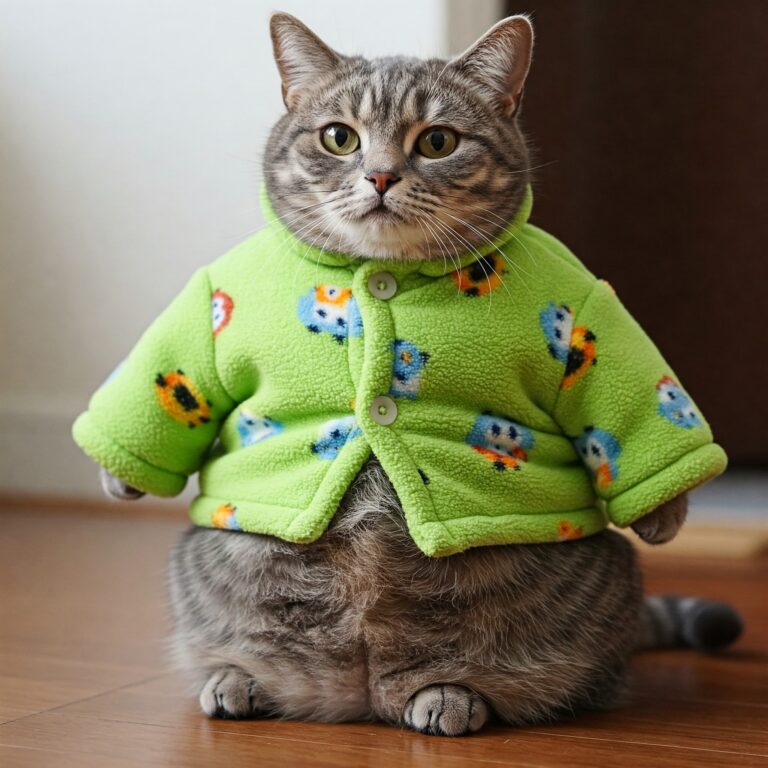
Vet-Recommended Cat Supplements:
As pet owners, we want the best for our feline companions—including making sure they get the right nutrition to live long, healthy lives. While a well-balanced commercial cat food generally provides essential nutrients, some cats may benefit from added supplements.
Table of Contents
But with so many products on the market, how do you know which supplements are actually recommended by veterinarians—and which ones your cat truly needs?
In this article, we’ll break down the most common types of vet-recommended cat supplements, when they’re needed, and what to look for.
Do Cats Really Need Supplements?
Not always. Healthy cats eating a complete, balanced diet usually don’t need extra vitamins or minerals. However, supplements can be helpful in certain situations, such as:
- Chronic health conditions
- Aging-related issues
- Digestive problems
- Joint pain or arthritis
- Skin and coat problems
- Stress or anxiety
Important: Always consult your veterinarian before starting any supplement regimen. Some supplements may interact with medications or be harmful in large doses.

1. Joint Health: Glucosamine & Chondroitin
These are the most common supplements for aging cats or those with arthritis. Glucosamine helps maintain cartilage, while chondroitin helps prevent its breakdown.
Vet-Recommended Products:
- Cosequin for Cats
- Dasuquin for Cats
Best For: Older cats, large-breed cats, or those with mobility issues.
2. Omega-3 Fatty Acids (Fish Oil)
Omega-3s from fish oil can improve skin and coat condition, reduce inflammation, and support heart and kidney health.
Vet-Recommended Products:
- Nordic Naturals Omega-3 Pet
- Welactin for Cats
Best For: Cats with itchy skin, dry coats, arthritis, or kidney disease.
3. Probiotics
Probiotics support a healthy gut microbiome and are often recommended for cats with digestive issues, diarrhea, or after antibiotic use.
Vet-Recommended Products:
- FortiFlora by Purina
- Proviable by Nutramax
Best For: Cats with chronic GI issues or during times of stress.

4. L-Lysine
L-Lysine is an amino acid often used to support cats with upper respiratory infections, particularly those caused by feline herpesvirus.
Vet-Recommended Products:
- Viralys Gel
- VetriScience Vetri-Lysine Plus
Best For: Cats with sneezing, runny nose, or feline herpes symptoms.
5. Multivitamins
General multivitamins can support overall wellness, especially in senior cats, picky eaters, or those on homemade diets.
Vet-Recommended Products:
- Nutri-Vet Multi-Vite
- Tomlyn High Calorie Nutritional Gel
Best For: Senior cats or cats with poor appetite or nutritional gaps.
6. Calming Aids (Natural Supplements)
Supplements with ingredients like L-theanine, tryptophan, or casein may help reduce anxiety and stress-related behaviors.
Vet-Recommended Products:
- Zylkene
- Composure by VetriScience
Best For: Cats with travel anxiety, fear of loud noises, or changes in environment.
What to Look for in a Cat Supplement
- Veterinarian approval or brand reputation
- Made specifically for cats (never give dog supplements!)
- Third-party tested for safety and purity
- Clear dosage instructions
- Minimal fillers or artificial ingredients
When to Talk to Your Vet
Before giving your cat any supplement, consult your vet—especially if your cat has an existing condition, is on medication, or is pregnant or nursing.
Final Thoughts
While not every cat needs supplements, the right product can make a real difference for specific health issues. Vet-recommended cat supplements are backed by clinical research and trusted by professionals to help with everything from arthritis to digestive health.
By working with your veterinarian and choosing proven products, you can help your cat feel their best—at every stage of life.

